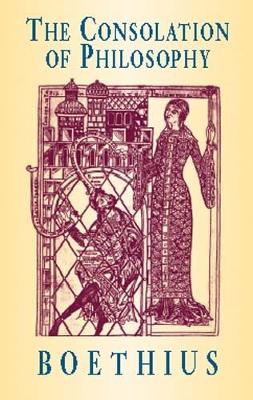Boethius composed the Consolatio Philosophiae in the sixth century AD whilst awaiting death under torture. He had been condemned on a charge of treason which he protested was manifestly unjust. Though a convinced Christian, in detailing the true end of life which is the soul's knowledge of God, he consoled himself not with Christian precepts but with the tenets of Greek philosophy. This work dominated the intellectual world of the Middle Ages; writers as
diverse as Thomas Aquinas, Jean de Meun, and Dante were inspired by it. In England it was rendered into Old English by Alfred the Great, into Middle English by Geoffrey Chaucer, and later Queen Elizabeth I made her own translation. The circumstances of composition, the heroic demeanour of the author, and the
`Menippean' texture (part prose, part verse; Boethius was a considerable poet) have combined to exercise a fascination over students of philosophy and of literature ever since. Professor Walsh has included an introduction and explanatory notes which combined with his new translation make the text accessible to general readers and scholars alike.
- ISBN10 0486421635
- ISBN13 9780486421636
- Publish Date 28 March 2003 (first published 4 April 1902)
- Publish Status Active
- Publish Country US
- Imprint Dover Publications Inc.
- Format Paperback
- Pages 128
- Language English
